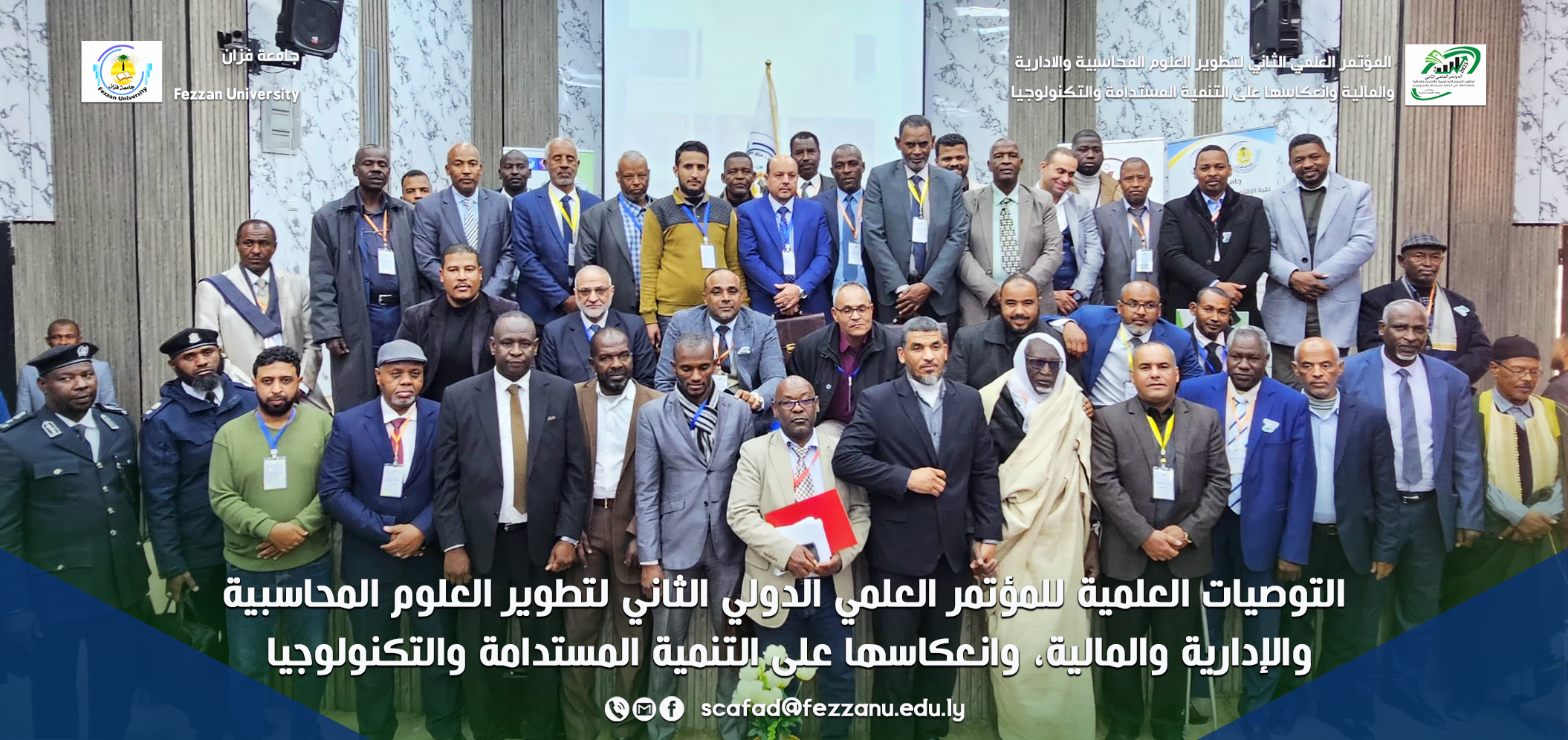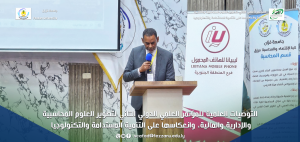
Scientific Recommendations
● Following the continuation of its scientific sessions on Wednesday and Thursday (January 22-23, 2025) hosted graciously by Faculty of Economics and Accounting in the city of Murzuq, and in the presence of a number of researchers from local and Arab universities, who presented fifty research papers that varied between in-person and remote presentations, distributed across four axes: accounting, administrative, financial, and economic, and after discussing these papers, the scientific committee of the Second International Conference for the Development of Accounting, Administrative, and Financial Sciences and their Reflection on Sustainable Development and Technology reached the following results and recommendations:
1. There is a necessity to provide the required elements (utilization of the accrual basis, application of the concept of processes, use of the concept of process re-engineering, and adoption of a learning approach) to successfully transform to program and performance budgeting
2. Enhance the role of banks to benefit from digital transformation mechanisms in the banking sector in general, and specifically use them to conduct internal audit activities to achieve continuous development and improvement in these banks.
3. It is essential to provide training courses for members of Islamic banking committees to increase their experience and knowledge of Islamic Sharia and banking laws, and to enhance collaboration between the committees and Sharia experts and universities to benefit from the latest developments in Sharia compliance.
4. Encourage the practice of innovation and entrepreneurship by conducting awareness campaigns for university students about the importance of entrepreneurship, the necessity of learning from successful international and Arab experiences in entrepreneurship, and benefiting from them, while considering the differences in the Libyan environment and identifying the key challenges it faces
5 – Government entities should prepare and adopt a code of conduct or a charter for public service ethics, and work on developing ethics skills for public sector employees in particular.
6 – It is essential to follow a set of controls and standards, ensuring that a number of general and specific qualities are present in the selection process for leaders. An optimal practical and scientific approach should be adopted in forming councils, along with specific policies for preparing and qualifying second-tier leadership, and implementing a defined strategy for building, preparing, and developing these leaders to achieve the desired goals.
7 – The importance of adopting technology in the financial and administrative fields to ensure the proper application of knowledge management concepts.
8 – It is necessary to establish laws that regulate and monitor smart insurance contracts, encourage the emergence of start-up insurance companies through scientific seminars and workshops at the university level, as well as support research centers and business incubators.
9 – Attention should be given to the concept of food security in a way that ensures the availability of essential products and protects them from global price fluctuations during crises.
10 – Increased focus on preparing training courses and workshops related to the green economy, emphasizing its importance and contemporary global trends towards it.
11 – Preparing the local market for global competition, focusing on attracting more technological investments, continuing to develop institutions, and enhancing their role in applying international standards for supervision and oversight.
12 – Reviewing current laws and updating them to keep pace with technological advancements, considering the importance of cybersecurity, and establishing appropriate penalties for violations.
13 – Working towards unifying state institutions in a manner that ensures harmony among all policies within the country, safeguarding the Libyan economy from the repercussions of this division, and alleviating its impact on daily life.
● Issued by the Scientific Committee of the Conference, on Thursday (1/23/2025 ).

